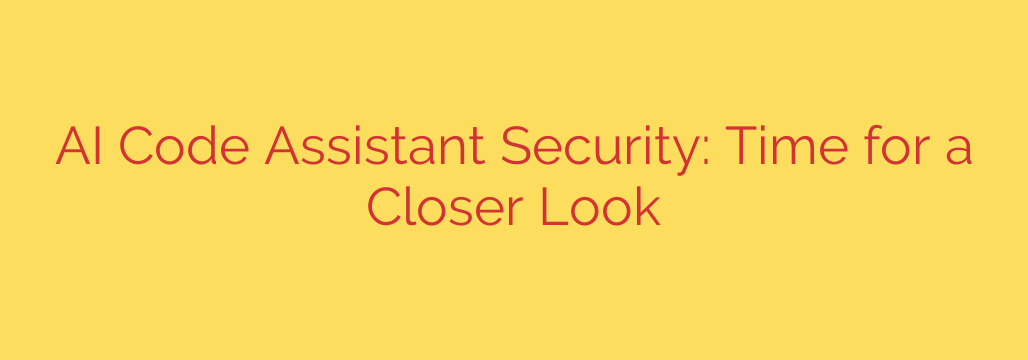
The integration of artificial intelligence into software development workflows is accelerating at an unprecedented pace, offering significant productivity gains. AI code assistants, capable of suggesting code snippets, completing functions, and even generating entire code blocks, are becoming indispensable tools for developers. However, while the benefits are clear, a closer examination of the associated security implications is absolutely critical. Ignoring these potential pitfalls can introduce serious risks into the software supply chain and compromise organizational data integrity.
One of the primary concerns revolves around the data fed into these AI models. When developers input proprietary code, internal API keys, or other sensitive data as part of their prompts or context, there’s a significant risk of this information being retained by the AI service provider or potentially exposed through the model’s future outputs or breaches. Organizations must understand the data handling policies of the AI service and evaluate whether they align with internal compliance requirements and data governance standards.
Beyond data leakage through prompts, the security of the generated code itself is a major challenge. AI models are trained on vast datasets, which may include insecure code patterns or even intentionally malicious examples introduced during training. As a result, AI assistants can inadvertently (or potentially intentionally, in sophisticated attacks) suggest code that contains vulnerabilities, such as injection flaws, insecure deserialization, or weak cryptographic implementations. Developers must not blindly accept AI-generated code. Rigorous code review, static analysis, and dynamic testing remain essential practices to catch these issues before deployment.
Furthermore, relying heavily on AI assistants introduces new considerations for the software supply chain. The AI model itself becomes a dependency, and its reliability and security are paramount. How was the model trained? Is the training data secure? Is the model itself resistant to adversarial attacks that could manipulate its suggestions? These questions highlight the need for diligence in selecting AI code assistant providers and potentially exploring on-premise or private cloud options for highly sensitive development.
Establishing clear policies and providing comprehensive training for development teams is vital. Developers need to be educated on the potential security risks of using AI assistants, instructed on how to handle sensitive data when using these tools, and reminded that they remain ultimately responsible for the security and quality of the final code. Implementing technical controls, such as integrating security scanning into the CI/CD pipeline to automatically check AI-generated code and monitoring AI usage for anomalous patterns, is also a crucial step.
In conclusion, AI code assistants offer powerful capabilities but demand a proactive and informed approach to security. By understanding the risks associated with data privacy, generated code vulnerabilities, and supply chain dependencies, and by implementing robust policies, training, and technical safeguards, organizations can harness the power of AI code assistance while effectively mitigating potential security threats. The time for a closer look at AI code assistant security is now.
Source: https://www.helpnetsecurity.com/2025/06/19/silviu-asandei-sonar-ai-code-assistants-security/








